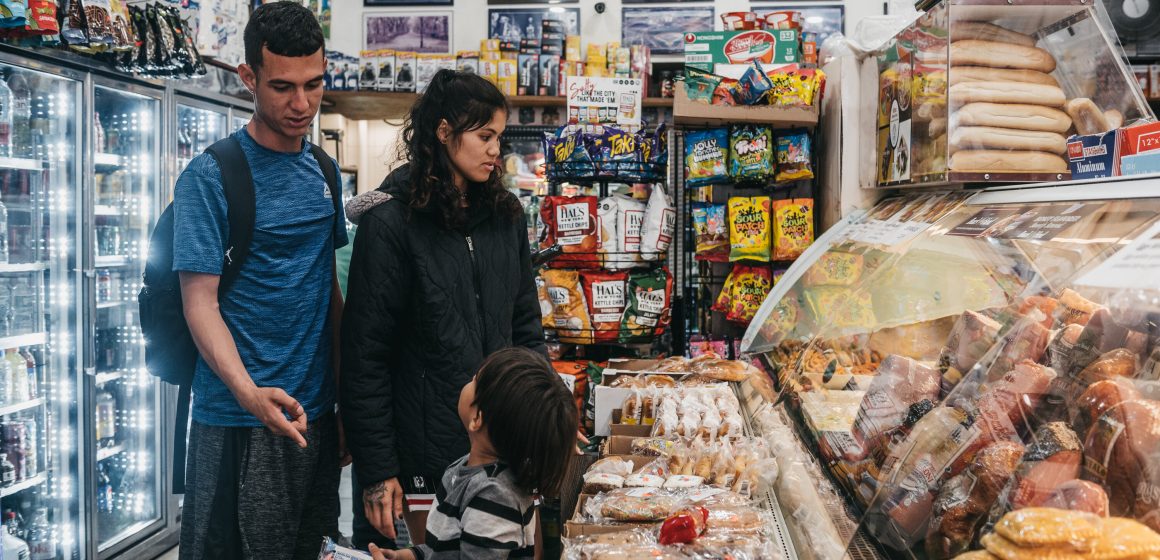New York City is taking significant steps to support its migrant population by expanding a food debit card program that provides essential supplies to those in need. Initially launched in March, the program aims to distribute prepaid debit cards to more than 7,300 migrants staying in city-funded hotels. Over the next six months, this initiative is expected to cost approximately $2.6 million, offering a more cost-effective solution compared to previous efforts.
The expansion of this program comes as part of a contract with Mobility Capital Finance and is intended to replace a previous meal delivery service that was both costly and inefficient. The earlier meal delivery program was projected to cost $5.6 million over six months, more than double the price of the debit card program. This shift not only reduces expenses but also addresses concerns about waste generated by the meal deliveries.
Under this program, migrants residing in hotels converted into shelters through the city’s 28-day housing voucher system are eligible to receive debit cards. These cards are loaded with $12.52 per person per day for 28 days and can be used exclusively at designated locations such as bodegas, grocery stores, supermarkets, and convenience stores. This ensures that the funds are utilized solely for purchasing food and baby supplies, adhering to the program’s goals.
Mayor Eric Adams’ chief of staff, Camille Joseph Varlack, highlighted the necessity of this program in maintaining the city’s commitment to providing food and shelter to migrants under the “right-to-shelter” law.
New York City has seen an influx of over 200,000 migrants in the past two years, placing significant demands on its shelter system. The food debit card program is part of a broader strategy to manage these demands more efficiently and humanely.
The program’s expansion also involves converting 14 additional hotels into shelters, increasing the total to 17. These shelters will collectively serve approximately 1,230 migrants each month, which is about 2% of the over 65,000 migrants currently supported by the city’s shelter system. This strategic increase in shelter capacity underscores the city’s ongoing efforts to accommodate the growing migrant population.
Despite initial concerns and criticisms regarding the potential misuse of debit cards, city officials have implemented robust fraud prevention measures. The cards are digitally coded to ensure they are only accepted at specific stores, preventing unauthorized purchases. Migrants participating in the program must sign affidavits agreeing to use the cards strictly for food and baby supplies, with violations resulting in removal from the program.
Deputy Mayor Fabien Levy addressed public concerns at a press conference, emphasizing that the program does not provide “free money” but rather a vital support system for migrants. “These are not ATM cards. You can’t take cash out,” Levy stated, clarifying the program’s limitations and reinforcing its purpose.
The introduction and expansion of the food debit card program have faced backlash from some quarters, including criticism from Texas Governor Greg Abbott, who labeled the initiative as driven by “insanity.” However, New York City officials maintain that the program is a practical and necessary measure to fulfill their legal and humanitarian obligations while managing costs effectively.

Federally funded programs such as SNAP (Supplemental Nutrition Assistance Program) and WIC (Women, Infants, and Children) have successfully used similar prepaid card systems for years. By adopting a comparable approach, New York City aims to streamline support for migrants and ensure that essential needs are met in a dignified and efficient manner.
As the city continues to navigate the complexities of providing for its migrant population, the expanded food debit card program represents a critical component of its strategy. Balancing fiscal responsibility with compassionate care, New York City is working to create a sustainable model for supporting migrants, one that other cities facing similar challenges might look to for inspiration.
Read More News:
Hardship in the Pine Tree State: Maine’s Top 5 Most Miserable Cities
Fatal Shooting: Queen’s DJ Killed at Fourth of July Party!


Leave a Reply